
Entertainment
-
 DiscoverEU marks 40 years of Schengen with 40,000 free travel passes for young Europeans
The European Commission is celebrating the 40th anniversary of the Schengen Area by offering 40,000 young Europeans the chance to explore the continent through DiscoverEU, part of the31 October 2025Read More...
DiscoverEU marks 40 years of Schengen with 40,000 free travel passes for young Europeans
The European Commission is celebrating the 40th anniversary of the Schengen Area by offering 40,000 young Europeans the chance to explore the continent through DiscoverEU, part of the31 October 2025Read More... -
 Brussels universities to award honorary doctorates to Stromae, Lize Spit, and Amélie Nothomb
The Vrije Universiteit Brussel (VUB) announced on Monday that Stromae, Lize Spit, Amélie Nothomb, François Schuiten, and Ever Meulen will receive joint honorary doctorates from VUB and27 October 2025Read More...
Brussels universities to award honorary doctorates to Stromae, Lize Spit, and Amélie Nothomb
The Vrije Universiteit Brussel (VUB) announced on Monday that Stromae, Lize Spit, Amélie Nothomb, François Schuiten, and Ever Meulen will receive joint honorary doctorates from VUB and27 October 2025Read More... -
 Stolen Renaissance masterpiece returns to Italy after 52 years
After more than half a century, a stolen Renaissance painting has finally returned home to Italy. *Madonna with Child*, a tempera-on-wood masterpiece by Venetian painter Antonio Solario,31 July 2025Read More...
Stolen Renaissance masterpiece returns to Italy after 52 years
After more than half a century, a stolen Renaissance painting has finally returned home to Italy. *Madonna with Child*, a tempera-on-wood masterpiece by Venetian painter Antonio Solario,31 July 2025Read More... -
 Belgian seaside resorts: highlights of royal De Panne
While Ostend is often dubbed the queen of Belgium’s seaside resorts, the country’s coastline offers many other gems worth discovering. In this series, Belga English explores four distinctive20 July 2025Read More...
Belgian seaside resorts: highlights of royal De Panne
While Ostend is often dubbed the queen of Belgium’s seaside resorts, the country’s coastline offers many other gems worth discovering. In this series, Belga English explores four distinctive20 July 2025Read More... -
 Louis Vuitton named suspect in Dutch money laundering probe
Luxury fashion house Louis Vuitton has been named a suspect in a Dutch money laundering investigation, according to the Dutch Public Prosecution Service (OM). The OM alleges that18 July 2025Read More...
Louis Vuitton named suspect in Dutch money laundering probe
Luxury fashion house Louis Vuitton has been named a suspect in a Dutch money laundering investigation, according to the Dutch Public Prosecution Service (OM). The OM alleges that18 July 2025Read More... -
 Brussels tops global rankings for international meetings as tourism soars to new heights
Brussels has once again secured its position as the world’s top city for international meetings, according to the latest annual report from the Union of International Associations (UIA).26 June 2025Read More...
Brussels tops global rankings for international meetings as tourism soars to new heights
Brussels has once again secured its position as the world’s top city for international meetings, according to the latest annual report from the Union of International Associations (UIA).26 June 2025Read More... -
 Coffee prices keep climbing in Czech establishments
The cost of a cup of coffee in Czech restaurants and cafés has increased by 4% over the past year, now averaging CZK 57.80, according to data from the Dotykačka point-of-sale system.15 June 2025Read More...
Coffee prices keep climbing in Czech establishments
The cost of a cup of coffee in Czech restaurants and cafés has increased by 4% over the past year, now averaging CZK 57.80, according to data from the Dotykačka point-of-sale system.15 June 2025Read More...
News
-
 Indonesia takes delivery of first Rafale fighter jets in $8 billion defence upgrade
Indonesia has officially taken delivery of its first Rafale fighter jets from France, marking a major milestone in the country’s push to modernise its ageing military fleet.Read More...
Indonesia takes delivery of first Rafale fighter jets in $8 billion defence upgrade
Indonesia has officially taken delivery of its first Rafale fighter jets from France, marking a major milestone in the country’s push to modernise its ageing military fleet.Read More... -
 EU must build over 2 million homes annually by 2035 to avert housing crisis, new data shows
The European Union will need to build more than two million new homes every year until 2035 to keep up with soaring demand, according to new projections released by the EuropeanRead More...
EU must build over 2 million homes annually by 2035 to avert housing crisis, new data shows
The European Union will need to build more than two million new homes every year until 2035 to keep up with soaring demand, according to new projections released by the EuropeanRead More... -
 Police raid homes and offices of French Culture Minister Rachida Dati in corruption probe
French police searched Culture Minister Rachida Dati’s home and offices on Thursday as part of a widening corruption investigation linked to her tenure as a European Parliament lawmaker,Read More...
Police raid homes and offices of French Culture Minister Rachida Dati in corruption probe
French police searched Culture Minister Rachida Dati’s home and offices on Thursday as part of a widening corruption investigation linked to her tenure as a European Parliament lawmaker,Read More... -
 White Christmas unlikely in Switzerland, MeteoSwiss says
The chances of a white Christmas in Switzerland are slim, with snowfall in the lowlands virtually ruled out, according to the Federal Office of Meteorology and Climatology (MeteoSwiss).Read More...
White Christmas unlikely in Switzerland, MeteoSwiss says
The chances of a white Christmas in Switzerland are slim, with snowfall in the lowlands virtually ruled out, according to the Federal Office of Meteorology and Climatology (MeteoSwiss).Read More... -
 Guy Parmelin elected Swiss President for 2026 with record-breaking vote
Economics Minister Guy Parmelin will serve as President of the Swiss Confederation in 2026, securing the office with a result that sets a new benchmark for the current millennium.Read More...
Guy Parmelin elected Swiss President for 2026 with record-breaking vote
Economics Minister Guy Parmelin will serve as President of the Swiss Confederation in 2026, securing the office with a result that sets a new benchmark for the current millennium.Read More... -
 Nigeria seeks French support to tackle insecurity, Macron says
Nigerian President Bola Tinubu has requested increased support from France to combat escalating insecurity in the country’s north, French President Emmanuel Macron said on Sunday,Read More...
Nigeria seeks French support to tackle insecurity, Macron says
Nigerian President Bola Tinubu has requested increased support from France to combat escalating insecurity in the country’s north, French President Emmanuel Macron said on Sunday,Read More... -
 Swiss army has “gone back to sleep,” says departing chief
Switzerland briefly awakened to the urgency of national defence following Russia’s 2022 invasion of Ukraine — but has since drifted back into complacency, outgoingRead More...
Swiss army has “gone back to sleep,” says departing chief
Switzerland briefly awakened to the urgency of national defence following Russia’s 2022 invasion of Ukraine — but has since drifted back into complacency, outgoingRead More...

Most Read
- Teen held after US woman killed in London stabbings
- Football: Farhad Moshiri adamant Everton deal above board
- Greece hails new post-bailout chapter but concerns remain
- The Kokorev case caused wide discussion in Brussels
- EU accession talks stir debate in Moldova: insights from Gagauzia's leader, Yevgenia Gutsul
Politics
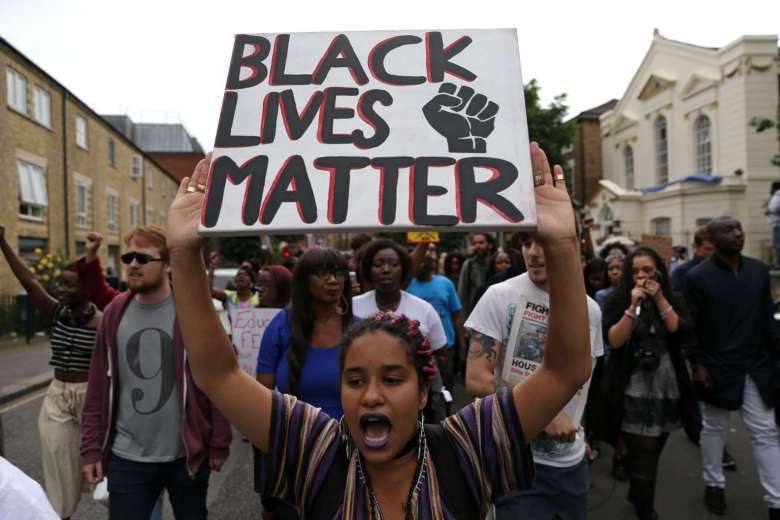
Several hundred people protested in London Saturday after the killing of black men by police in the United States.
The Black Lives Matter demonstration saw protesters march to a police station and block buses and traffic, an AFP photographer at the scene said.
Chanting and sitting in the road, demonstrators carried placards with slogans such as "Stop Killing Us" and "White Silence Costs Lives".
London's Metropolitan Police declined to comment on the march in Brixton, south London, or give any information about the number of officers deployed.
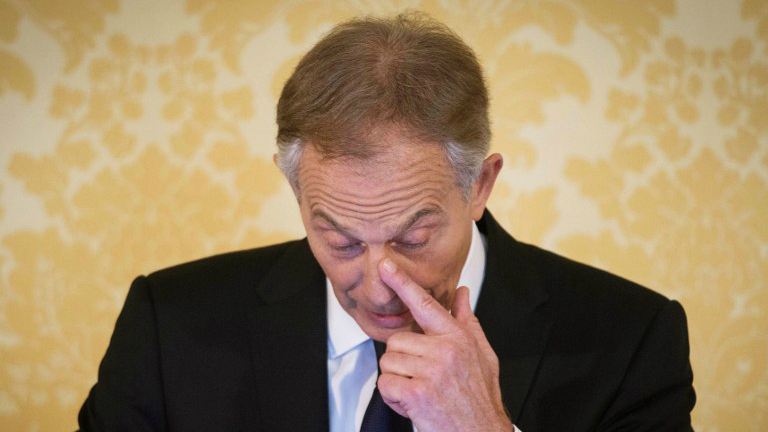
At times close to tears, former prime minister Tony Blair faced the world’s media Wednesday to defend his place in history after the damning findings of Britain’s inquiry into the Iraq war.
There was an apology — of sorts — from the former Labour leader, who in 1997 at the age of 43 became Britain’s youngest premier in nearly two centuries.
“I express more sorrow, regret and apology than you may ever know or can believe,” said a hoarse-sounding Blair, his voice breaking.
He also insisted that memories of events around the invasion — which led to the death of more than 150,000 Iraqis and 179 British soldiers — would never leave him.
“There will not be a day of my life where I don’t relive or rethink what happened,” he told the news conference at London’s Admiralty House, once home to wartime prime minister Winston Churchill.
But after nearly two hours of talking and a barrage of questions from journalists, Blair was still adamant that he had taken the right decisions on Iraq despite the serious flaws in planning and execution which dogged the US-led invasion in 2003.
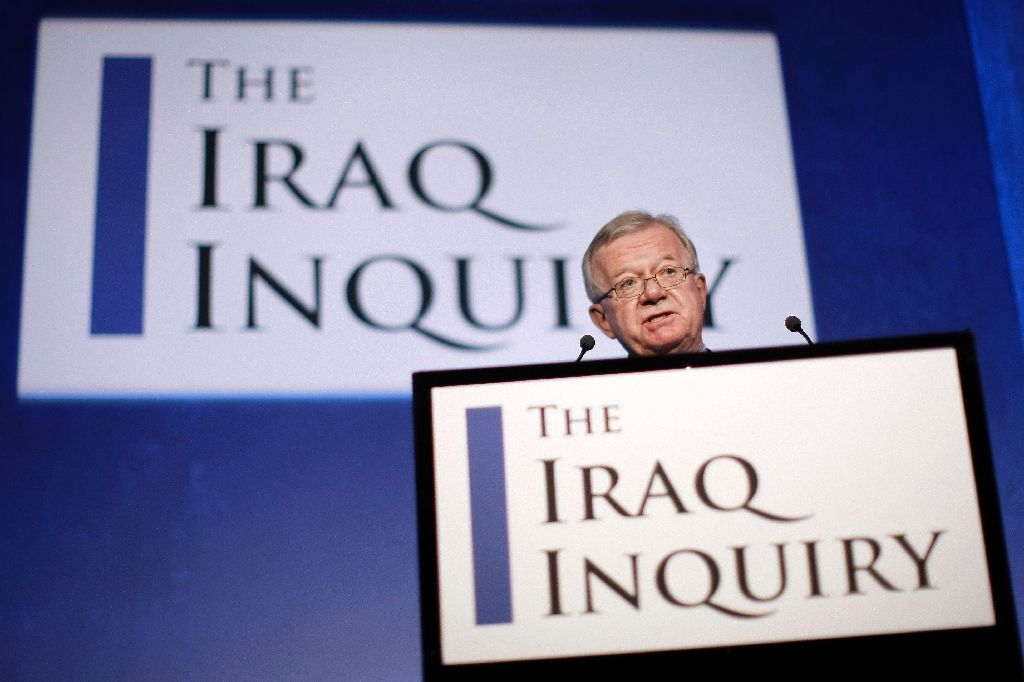
Seven years after it began, the official inquiry into Britain's role in the Iraq war finally reports on Wednesday with former prime minister Tony Blair expected to face severe criticism.
The Chilcot inquiry launched in 2009 as British troops withdrew from Iraq, tasked with investigating the run-up to the 2003 US-led invasion and the subsequent occupation.
Tens of thousands of Iraqis died during the conflict and the brutal sectarian war that followed, while 179 British soldiers also lost their lives -- many of whose relatives are still searching for answers.
The invasion was controversial at the time as it did not have explicit approval from the UN Security Council, while claims that Iraqi leader Saddam Hussein had weapons of mass destruction proved unfounded.
Although he stepped down in 2007, Blair remains reviled by much of Britain for the conflict, which is viewed as at best misguided, and as worst a war crime.

Sadness, insomnia, frustration and confusion: the Brexit blues have gripped many European Union supporters since Britain's shock decision to leave the bloc last week.
"I would say I am currently suffering from anxiety and/or depression," EU backer Mick Watson, 41, told AFP.
"I hadn't felt anything like this before Friday's referendum result. I am worried, very worried.
"I am constantly online, my work and home life has suffered. I feel like my way of life is threatened and that's scary," added the University of Edinburgh researcher.
The seismic vote has forced Britain to recognise the deep divisions within its society, a profound realisation that heralds a turbulent and uncertain future.
Around 17.4 million people voted to leave the EU, while 16.1 million voted to stay, leaving huge numbers fearful of life outside the bloc.
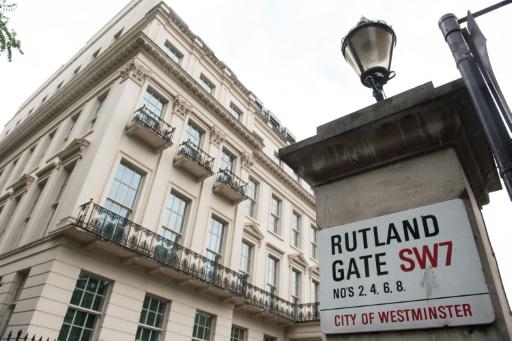
The Brexit vote could cool London's superheated property market, with some professionals already noting signs of a slowdown, though Gulf investors have signalled their interest is so far undimmed.
After a slump in 2008 during the global financial crisis, the sector recovered, first tentatively and then at full pelt, with average prices this year reaching 54 percent higher than their pre-crisis peak.
The growth was fuelled by population pressure, a desire by Britain's wealthier classes to put their savings into bricks and mortar, and the decision by magnates from the Gulf and Russia that London property was a safe place to park their fortunes.
But cracks were already starting to appear before Britain's shock vote on June 23 to leave the European Union, and these are now being magnified by fears of the economic fall-out and uncertainty that follows.
"Housing market activity and prices now look to be at very serious risk of an extended, marked downturn following the UK's vote to leave the EU," said Howard Archer, chief UK and European economist at IHS Global Insight.
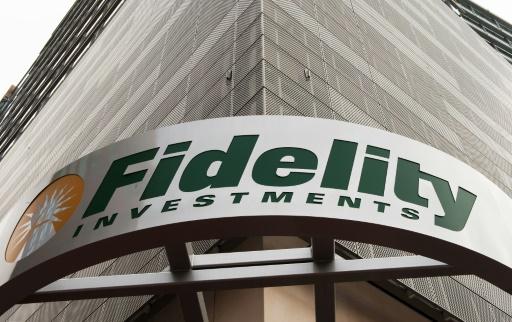
British investment fund manager Fidelity will move 100 jobs from London to Dublin, it said Friday, but stressed the decision was made before the shock EU exit referendum result.
"We have been recruiting into the Dublin office at the moment and there are some roles that will be moving from the UK," a Fidelity spokeswoman told AFP.
"To be clear, this is all part of this long term strategy mentioned above, a strategy which has evolved over time and has nothing to do with the referendum."
The British people voted last week in a crunch referendum to leave the European Union, with 52 percent in favour and 48 percent against.

Paul Gascoigne will stand trial in September after the troubled former England international footballer pleaded not guilty on Wednesday to a racially aggravated public order offence.
The 49-year-old, affectionately known as “Gazza”, allegedly made a racist joke about a security guard during “An Evening With Gazza” show in Wolverhampton, central England, in November last year.
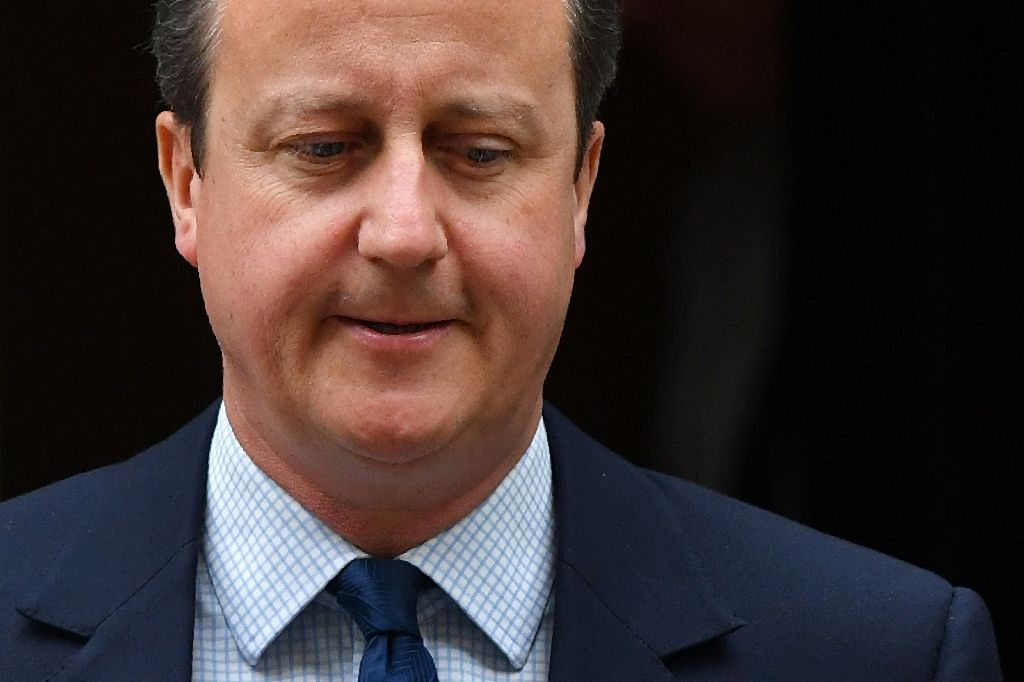
The ruling Conservatives fired the gun Wednesday on the race to pick Britain's next premier after a shock Brexit vote, as departing David Cameron turned his fire on beleaguered opposition leader Jeremy Corbyn.
Ex-London mayor and anti-EU campaigner Boris Johnson is tipped as a favourite to take over from Cameron on September 9 while interior minister Theresa May, who wanted to stay in the bloc, is another frontrunner.
Despite last week's surprise vote, it was not Cameron -- who is quitting after leading the unsuccessful "Remain" campaign -- but Corbyn who faced the roughest ride at parliament's weekly Prime Minister's Questions session.
Corbyn has vowed to stay in his job despite losing a confidence vote of MPs in his Labour party, dozens of whom have quit his frontbench team in recent days.
"It might be in my party's interests for him to sit there, it's not in the national interests and I would say, for heaven's sake man, go," Cameron told the veteran socialist, to loud cheers from MPs.

The world's largest uncut diamond failed to sell at auction in London on Wednesday after the bids fell short of the reserve price.
The Lesedi La Rona, a 1,109-carat, tennis ball-sized gem found in Botswana, had been predicted to sell for over $70 million.
But the Sotheby's auctioneer failed to persuade bidders to go above $61 million for the jewel, which was discovered in 2015 by the Lucara Diamond Corp.
"Though widely admired in the months preceding this evening’s auction, and despite having seen bidding in the salesroom, the Lesedi la Rona failed to reach its reserve price and consequently did not find a buyer tonight," Sotheby's said in a later statement.
Sotheby's chairman of jewellery David Bennett had called the diamond "the find of a lifetime."

Shares in banks, airlines and property companies plunged on the London stock exchange Monday as investors singled out the three sectors as being the most vulnerable to Britain's decision to leave the EU.
EasyJet stock fell over 16 percent after the company issued a profit warning, while British Airways parent IAG's shares were down 9.4 percent at around 0900 GMT.
Royal Bank of Scotland shares plunged more than 15 percent, Lloyds by 8.9 percent and Barclays by 10.2 percent.



















